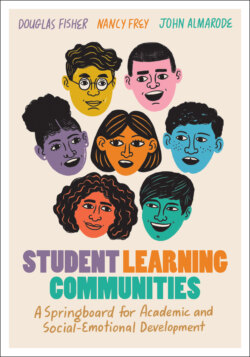Читать книгу Student Learning Communities - Нэнси Фрей - Страница 25
На сайте Литреса книга снята с продажи.
Identify Opportunities for Motivation
ОглавлениеTask motivation is more than just a willingness to do something. It involves the appraisal or judgment by a learner about whether the task is feasible, useful, and enjoyable (Boekaerts, 2002). Examples of task-related appraisals include the following:
Success expectations: Can I meet the desired outcome?
Task utility: How would I benefit?
Task difficulty: Do I know how to approach this?
Task enjoyment: Will I like doing this?
Group task appraisal continues after a task is completed, as learners gauge their own performance as well as the accomplishments of the group. In the absence of guidelines for how to reflect on their progress, they likely will link their success or failure to luck, rather than examining the role played by effort, the quality of contributions to the task, and individual or group decisions. When that happens, a very important social learning opportunity is lost.
Obviously, insight into students' task motivation can be extremely valuable for teachers looking to refine task design. However, it can be difficult to gauge and often requires some investigation on the part of the teacher to collect feedback from students about their perceptions of the task. We have discovered that the reflective questions about classroom tasks that Glen Poupore (2013) used with college undergraduates work equally well with younger students:
Did you like the task? Why or why not?
Was the task difficult or easy? Which parts and why?
Were you comfortable or anxious while doing the task? Which parts and why?
Did you like the topic of the task? Why? (p. 102)
Elementary teacher Dylan Hughes started using these questions soon after he shifted to distance learning. "I realized I needed the feedback," he said. "Teaching remotely has been a new experience for me, and I quickly found that some of the nonverbal signals I relied on in the classroom weren't there." After pausing for a moment, he continued, "Now that I think about it, I made lots of assumptions about what my students were learning. These questions get them thinking reflectively, but I'm really the one who benefits. Taking the time to ask for reflections has been giving me real-time feedback about what's working and what isn't."
Reflective questions can be included at the end of a written task to be submitted, as an exit slip for individuals to provide feedback, or as part of a debriefing discussion after a task is completed. There's another bonus to posing questions like these to students: your willingness to seek feedback communicates volumes to your students about their value, their self-governance, their autonomy, and their place in the learning community.
